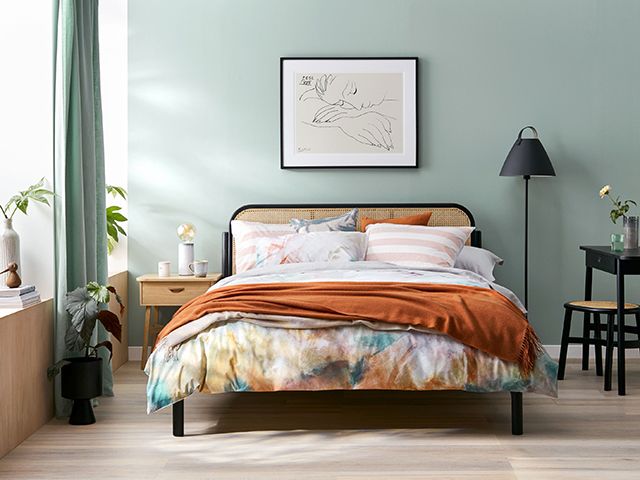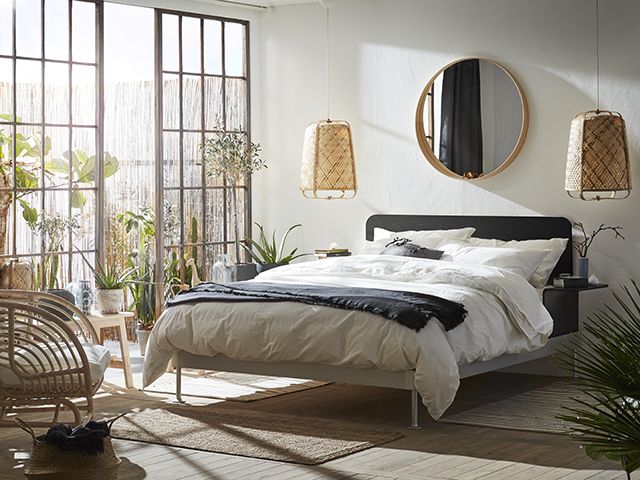
7 steps to create a calming, zen bedroom
Your bedroom should be a relaxing haven – here’s how to ensure your space feels peaceful from the moment you wake up till you fall asleep at night.

Image: Ikea
Is climbing into your bed at night your favourite part of the day? Well just imagine the satisfaction of that in a dreamily calm oasis of a master suite.
Creating a relaxing space is relatively easy, and doesn’t require you to completely redecorate. Try these simple tips to bring a moment of zen to your bedroom.
1. Storage
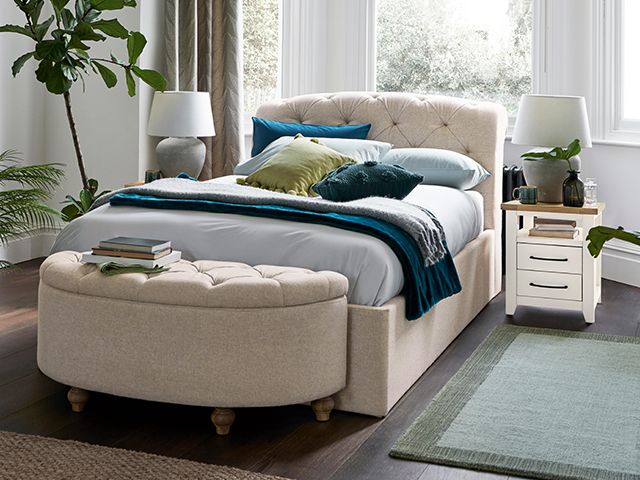
Image: Next
Bedroom clutter is not condusive to a calm, clear and collected state of mind. Ensuring your bedroom has ample storage will help to keep your space mess-free and your brain happy. Where possible, always opt for storage which hides your belongings away, especially clothes. Untidy folded piles of jeans and mismatched hangings are fine, but they’re better out of sight and out of mind.
2. Lighting
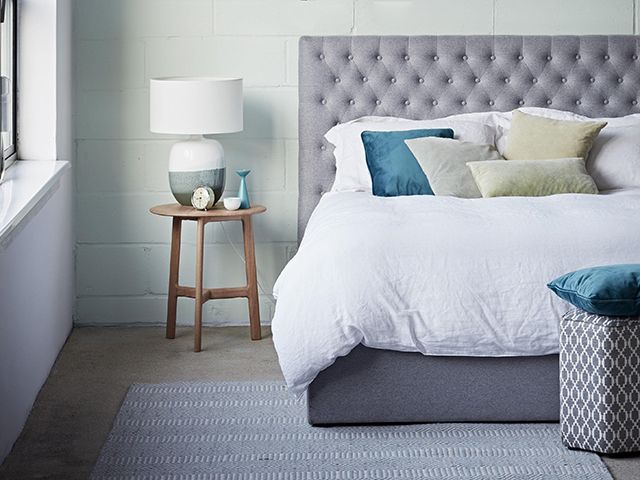
Image: Furniture Village
Your ability to wind down and fall asleep at night is linked to your circadian rhythm, which can be heavily influenced by lighting – that’s the whole idea behind wake up alarm clocks with wind down functions. Your bedroom should have bright overhead lighting for functional tasks such as getting dressed and cleaning, but ambient lighting is important for creating a relaxing space. Read our guide to occasional lighting for more.
3. Bedding
Image: John Lewis & Partners
The right bed linen is key to a good night’s sleep, but we’re not just talking about threadcount. Sure, something soft will undoubtedly help you feel more relaxed, but your bedding’s thermoregulatory qualities (keeping you cool when it’s hot, or warming you up when it’s cold) will be the thing that helps you get your full forty winks. Check out our guide to picking the right duvet for summer or winter to get you started, and look for bed linen made from breathable materials.
4. Window dressings
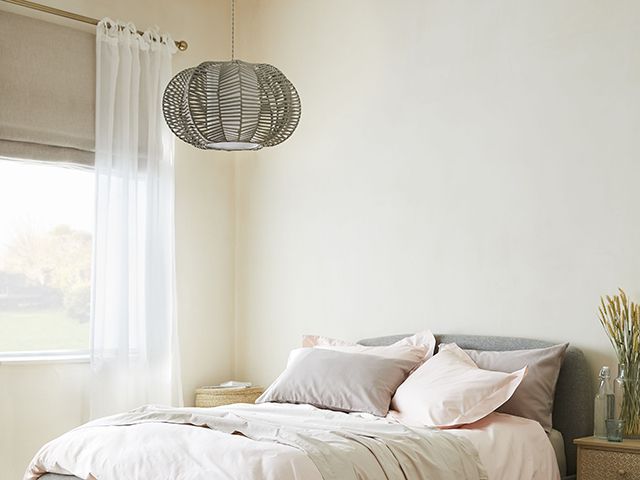
Image: Dunelm
Black out blinds or curtains are a must for a bedroom to stay sleep-friendly, but that’s not the be-all and end-all of window treatments. Think about how you use the space day to day. Privacy protectors, such as opaque blinds and voile curtains, make it easy to get dressed in your space without plunging the room into total darkness, ideal if you’re overlooked – and another worry crossed off your list.
5. Colour
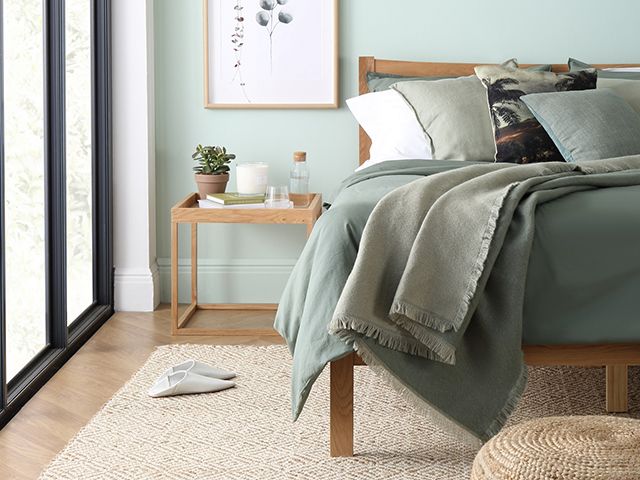
Image: Furniture Choice
You may already have an idea of typically ‘calming’ colours – neutrals, greens and blues, for example. But going beyond these natural, spa-like colours doesn’t mean that your space won’t be relaxing. Warm tones, dark colours and jewel-like hues, for example, each deliver a comforting, enveloping sense to the space, especially at night time – a different kind of relaxation than a bright and airy style, but calming nonetheless.
6. Plants
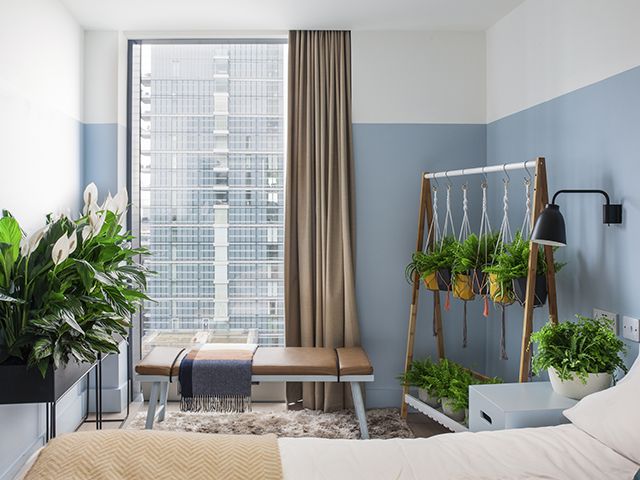
Image: Simone Morciano
Plants are proven to have a calming effect in your home, so pack your space full of plants. Though some of the relaxing benefits are put down to plants purifying the air, the effect of this may actually be very minimal according to science, so if the thought of plant parenting fills you with anxiety, go faux and enjoy the placebo benefits of surrounding yourself with nature.
7. Sustainability
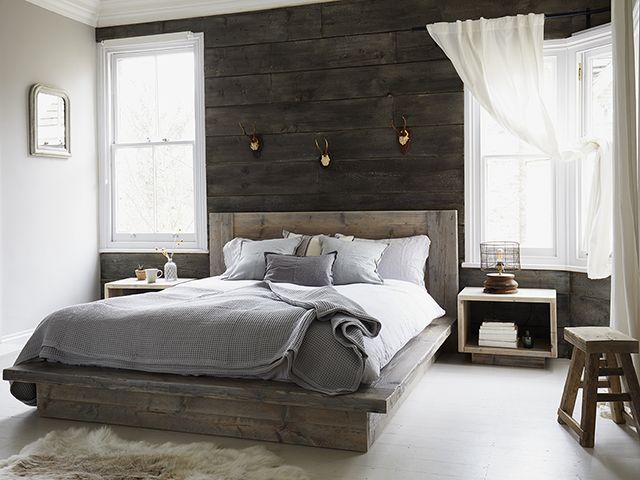
Image: Wearth London
You can sleep easy with a clear conscious knowing that the choices you’ve made in your bedroom haven’t negatively impacted the planet. Products made from sustainable materials often come with a higher level of craftmanship that also infuses your space with good spirit.
Want to show us your calming bedroom space? Tweet us @goodhomesmag, or post a comment on our Facebook page! Or, tag us in your photos on Instagram for a chance to be featured, using the hashtag #ThisGoodHome.





